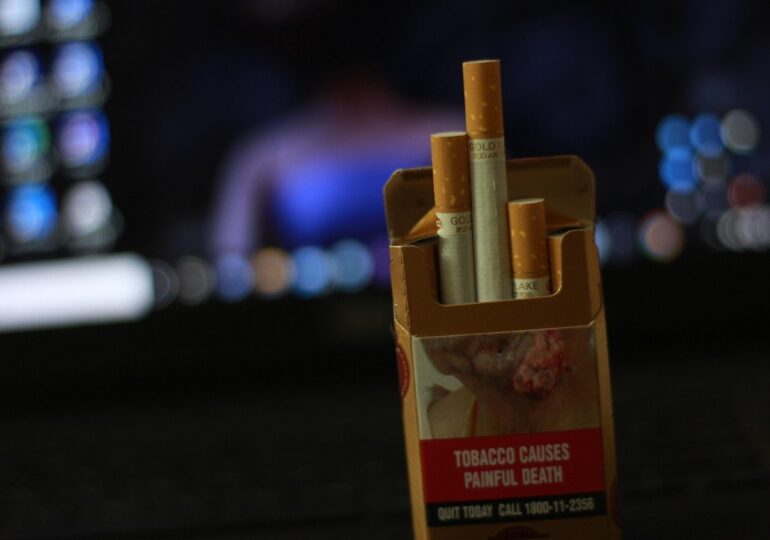Researchers advocating for tobacco control have developed an index that analyzes the tobacco industry and, they say, shows how companies in this sector manage to influence governments to ensure that taxes remain low.
Against the backdrop of reduced international aid and a gloomy global economic outlook, health ministries and civil society groups worldwide are concerned about funding for basic healthcare and prevention programs. Public health is in a fragile state and is in great need of funds.
Governments are advised to increase their domestic revenues to cover deficits, and taxing unhealthy products such as tobacco would be a beneficial solution for everyone. Higher taxes reduce demand and, consequently, the burden caused by associated diseases, while also bringing money into the government's coffers, as highlighted by Mary Assunta, head of research at the Global Center for Good Governance in Tobacco Control (GGTC) and the lead author of the Global Tobacco Industry Interference Index, in an article published in The Guardian.
The economic costs of smoking are staggering
The benefits of reducing tobacco consumption are significant, especially in low- and middle-income countries, where approximately 80% of the roughly 1.2 billion tobacco consumers worldwide reside, bearing the heaviest burden of tobacco-related diseases and deaths.
Tobacco is one of the leading causes of death globally, with over seven million deaths attributed to it every year, including approximately 1.6 million nonsmokers exposed to secondhand smoke; many others fall ill or become disabled.
The economic costs of smoking are staggering, estimated at around $1.7 trillion in the form of additional healthcare expenses and productivity losses in 2021 - equivalent to 1.7% of the global GDP. The estimate does not include the costs of tobacco-related environmental damage and food insecurity.
However, in many countries, tobacco taxes remain unchanged or stubbornly low.
Smuggling, the industry's main argument
The new Global Tobacco Industry Interference Index reveals that over 60 out of 100 countries included in the study have not increased tobacco taxes, have postponed tax hikes, reduced tax rates, and granted tax exemptions if products were manufactured for export in the last two years - often due to industry influence. For example, Gabon, Jamaica, and Kuwait have not increased tobacco taxes since 2017. Planned tax increases have been delayed in countries like Ghana and Papua New Guinea.
The index exposes how the tobacco industry acts to assert its interests over governments. Typically, tobacco companies lobby ministries outside of health, such as finance, agriculture, and trade. Twenty countries have been persuaded to collaborate with the tobacco industry to combat illicit trade through memoranda of understanding, training sessions, law enforcement activities, or accepting in-kind resources.
The industry's main argument is that higher taxes generate more intense illicit trade. This is a claim that has been repeatedly refuted in research studies, which show that lack of law enforcement, rather than tax enforcement, is responsible for the hidden market, the expert cited mentions.
Lobbying targets finance, agriculture, and trade
However, such collaborations provide the industry with another way to lobby decision-makers, where it can continue to exaggerate the impact of taxes on illicit trade to instill fear among government officials.
Tobacco companies lobby finance and trade ministries, claiming that tax increases will affect the sector's economic contribution and positioning themselves as good corporate actors. British American Tobacco (BAT) is recognized as a "top taxpayer" in Bangladesh and Pakistan. In Cambodia, Japan Tobacco International was acknowledged as one of the largest taxpayers in 2024 - its reward being a two-year audit exemption. Such measures convey the message that these highly profitable global companies should not pay more, Assunta emphasizes.
She notes that Argentina eliminated the minimum cigarette tax, benefiting major companies, including Massalin Particulares (Philip Morris International) and BAT, which could further lower prices for their cheaper brands and keep smokers addicted. Furthermore, she remarks that a former CEO of Philip Morris is the head of Argentina's monetary authority, contributing to fiscal policy.
Time for other priorities
From Bangladesh to Cameroon, Malawi, Senegal, the Solomon Islands, Uruguay, and Venezuela, companies have obtained tax exemptions for opening new tobacco factories, promising to use local tobacco leaves or exporting tobacco - activities from which they already benefit.
Instead of accepting a marginal profit loss to pay more to poor tobacco growers, companies have convinced governments to subsidize tobacco farmers.
Romania has the highest tobacco taxes in Europe, adjusted for purchasing power
The world's largest cigarette producers earned $125 billion in 2024. Being a significant taxpayer does not mean that the industry cannot or should not pay more, especially as studies have revealed the tactics the industry uses to reduce its tax obligations worldwide.
Too many governments subsidize wealthy tobacco companies from the global north to sell products that harm health and the environment, while they and their citizens pay the price of smoking.
At this critical moment, it is time for a change, the expert believes: tobacco taxes should increase further so that people smoke less, and governments can fund other health priorities.
T.D.

